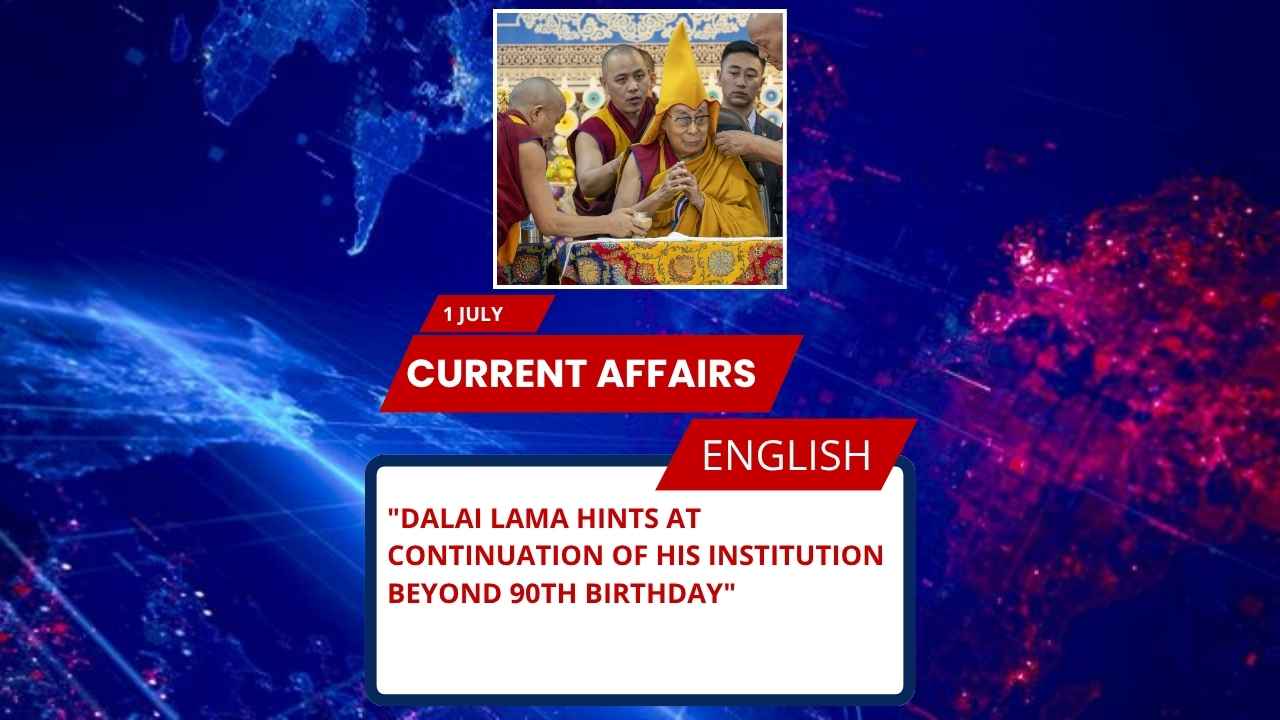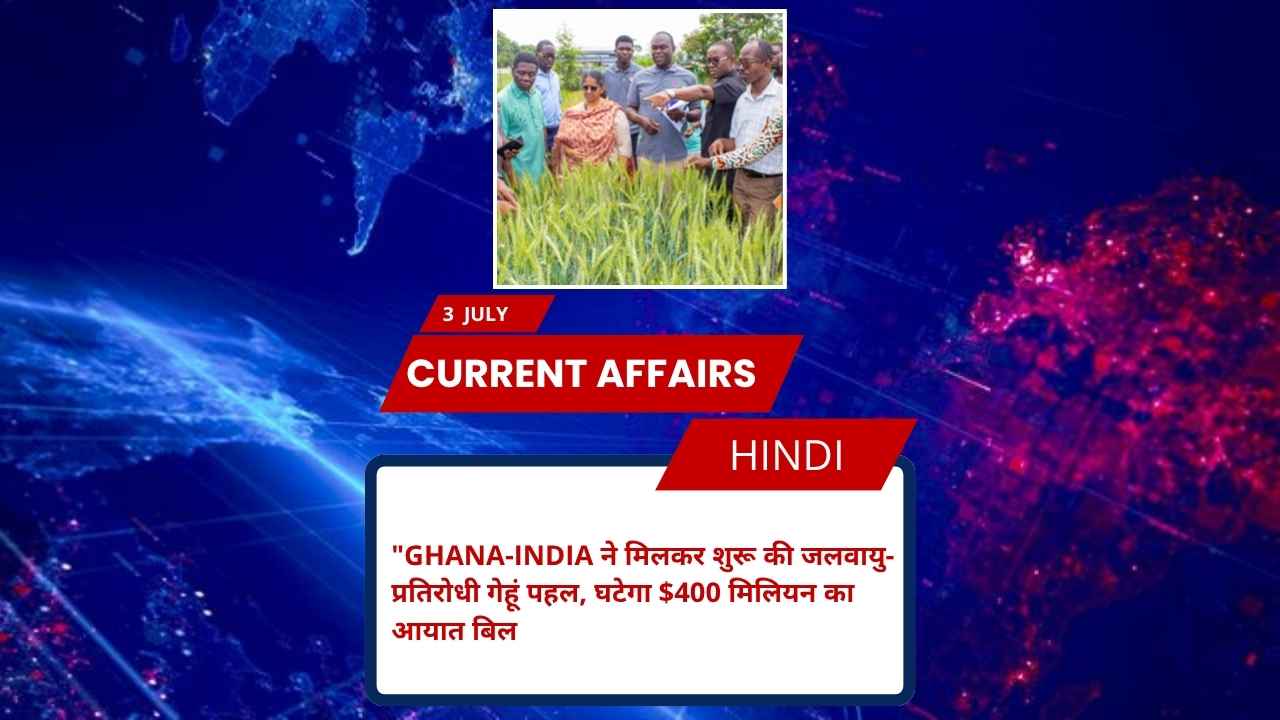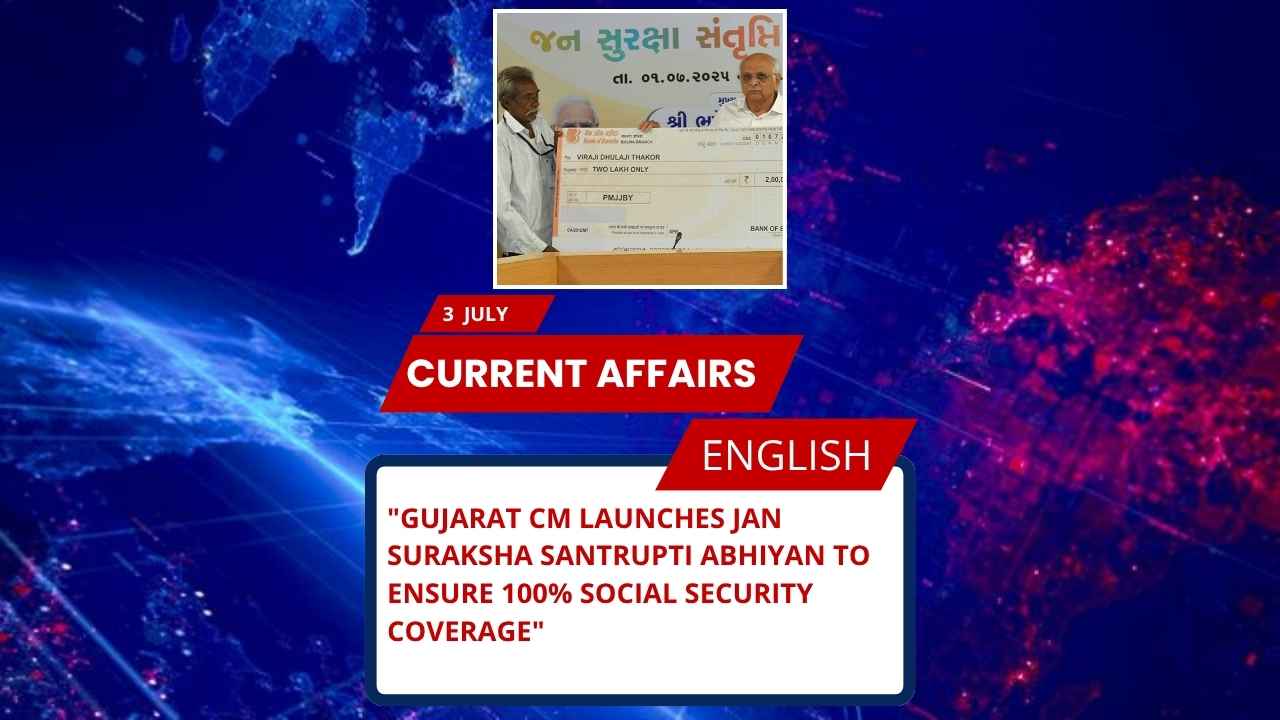
Key Points for SSC, UPSC, and Other Govt Exams:
- The Dalai Lama turns 90 on July 6, 2025.
- He gave a strong indication about the continuation of the 600-year-old Dalai Lama institution after his death.
- He lives in exile in Dharamshala, India since 1959.
- He is the 14th reincarnation of the Dalai Lama.
- Dalai Lama emphasized popular demand as a condition for the institution’s continuation.
- The occasion was celebrated at Tsuglakhang Temple, Dharamshala.
- The Dalai Lama has transferred political authority to an elected Tibetan government in exile in 2011.
- Concerns exist over China appointing a successor for political influence.
- The institution of Dalai Lama is tied to Tibetan identity and resistance to Chinese control.
Full Explanation:
Introduction
On June 30, 2025, during a grand prayer celebration in Dharamshala for his upcoming 90th birthday (July 6), His Holiness the Dalai Lama offered his clearest message yet regarding the continuation of the Dalai Lama institution after his passing. The event drew thousands of followers and global attention as the spiritual leader hinted that a framework could ensure the legacy continues.
The Dalai Lama’s Message
Wearing his iconic maroon and yellow robes, the 14th Dalai Lama (Tenzin Gyatso) declared:
“As far as the institution of the Dalai Lama, there will be some kind of a framework within which we can talk about its continuation.”
He added that despite being 90 years old, he is in good health and remains committed to the well-being of others.
Historical Background
- The Dalai Lama is regarded by Tibetans as a reincarnation of Avalokiteshvara, the Bodhisattva of compassion.
- He fled Tibet in 1959, after a failed uprising against Chinese rule, and has since lived in exile in Dharamshala, Himachal Pradesh, India.
- In 2011, he voluntarily gave up political authority, transferring it to a democratically elected Tibetan government-in-exile.
Political Context & Concerns
- China has often branded him a “separatist”, while global communities view him as a peace icon.
- Fears persist that China may appoint its own “Dalai Lama” to assert greater control over Tibet, undermining the traditional reincarnation system.
- The Dalai Lama had earlier warned of the risk of political misuse of the succession process.
Global Significance
This birthday milestone is not merely personal but symbolic. The spiritual continuity of the Dalai Lama role has deep significance for Tibetan culture, global Buddhist followers, and international human rights supporters.
“We offer our fervent devotions that Tenzin Gyatso, protector of the Land of Snows, lives for one hundred eons,” monks chanted during the celebration.
Important Information: Dharamshala (India)
| Category | Information |
|---|---|
| State | Himachal Pradesh |
| Capital | Shimla (Summer), Dharamshala (Winter – HP Govt) |
| Chief Minister | Sukhvinder Singh Sukhu (as of 2025) |
| Popular National Parks | Great Himalayan National Park |
| Major Rivers | Beas, Ravi |
| Key Location Mentioned | Tsuglakhang Temple, Dharamshala |
MCQs for Exam Practice
Q1. Where was the 90th birthday prayer celebration of the Dalai Lama held?
A. Lhasa
B. Kathmandu
C. Tsuglakhang Temple, Dharamshala
D. Bodh Gaya
Answer: C
Q2. In which year did the Dalai Lama transfer political authority to the elected Tibetan government-in-exile?
A. 2008
B. 2011
C. 2015
D. 2018
Answer: B
Q3. The Dalai Lama is considered the reincarnation of which Bodhisattva?
A. Manjushri
B. Avalokiteshvara
C. Vajrapani
D. Samantabhadra
Answer: B
Q4. When did the Dalai Lama flee Tibet and come into exile in India?
A. 1955
B. 1957
C. 1959
D. 1962
Answer: C
Q5. How many incarnations of the Dalai Lama have existed till now?
A. 12
B. 13
C. 14
D. 15
Answer: C
UPSC Style FAQs
Q1. What is the significance of the 90th birthday of the Dalai Lama in 2025?
Answer:
The 90th birthday of the Dalai Lama marks not only a personal milestone but also a pivotal moment in Tibetan spiritual history. It brought forward a significant announcement indicating that the institution of the Dalai Lama may continue post his death. This has profound implications for Tibet’s cultural identity and global Buddhist communities. It also re-opens political concerns about China potentially manipulating the reincarnation process for its strategic interests in Tibet.
Q2. What are the implications of the Dalai Lama’s statement on the continuation of his institution?
Answer:
The Dalai Lama’s suggestion of a potential framework for succession ensures continuity in Tibetan Buddhism’s leadership. However, it raises geopolitical questions, particularly about China’s expected interference in naming a successor to assert control over Tibetan affairs. It reflects a need for global vigilance to preserve the authenticity of the spiritual process.
Q3. How does the Dalai Lama’s exile shape Tibetan politics and international advocacy?
Answer:
Since 1959, the Dalai Lama’s exile in India has positioned him as a global advocate for Tibetan autonomy, human rights, and non-violence. He has been instrumental in internationalizing the Tibetan cause. His decision to relinquish political authority in 2011 demonstrates a democratic evolution within the Tibetan exile community. His leadership continues to symbolize peaceful resistance and the pursuit of cultural preservation against authoritarian repression.
Q4. How does the succession of the Dalai Lama tie into China’s Tibet policy?
Answer:
China views control over Tibetan religious leadership as a means to consolidate its authority over the region. By potentially appointing a successor, Beijing aims to undermine the legitimacy of the Tibetan religious framework and dilute opposition. The Dalai Lama’s emphasis on popular support and framework for continuation is a pre-emptive spiritual safeguard against such state-driven interference.
Q5. What role has India played in sheltering the Dalai Lama and the Tibetan government-in-exile?
Answer:
India has played a vital role in providing refuge to the Dalai Lama and over 100,000 Tibetans. Dharamshala, Himachal Pradesh, has become the seat of the Tibetan government-in-exile and the spiritual base for Tibetan Buddhism in exile. India’s support, though cautious due to its diplomatic balancing with China, has allowed Tibetan culture and leadership to flourish outside of Chinese control.







